Texas A&M Biologists Uncover Protein Essential to Clock Gene Expression Repression in Monarch Butterflies
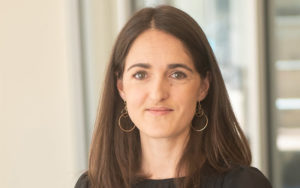
Scientists have known for several decades that mutations in the period gene which governs rhythmic transcription in mammals can wreak havoc on their circadian, or 24-hour, rhythms. They’ve also long known why, but thanks to Texas A&M University biologists in the Center for Biological Clocks Research (CBCR), scientists now know the how behind the why, courtesy of recent research published in PNAS that points to a new protein, the heat shock protein HSP68, which is also crucial to the tumultuous mix. Please read more about this exciting discovery from Christine Merlin, Jerome Menet and Paul Hardin — and their respective pooled insights across three model organisms: monarch butterflies, mice and fruit flies.
Dr. Deb Bell-Pedersen Elected as AAAS Fellow
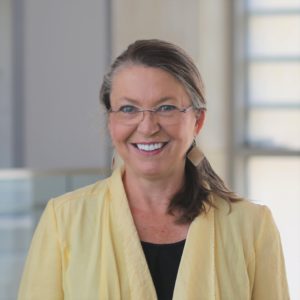
Dr. Terry Thomas University Professor of Biology Deborah Bell-Pedersen was recently recognized as a 2021 Fellow of the American Association for the Advancement of Science (AAAS). Bell-Pedersen is cited by the Biological Sciences section of the AAAS “for distinguished contributions to the field of molecular biology, particularly using Neurospora to understand genetic controls of circadian rhythms and circadian rhythm controls of gene expression.” Dr. Bell-Pedersen was one of 564 AAAS members honored this year by their peers for their efforts to advance science or its applications. Congratulations Dr. Bell-Pedersen!
The Department of Biology and CBCR welcome new biological clocks faculty
Dr. Jeffrey Jones
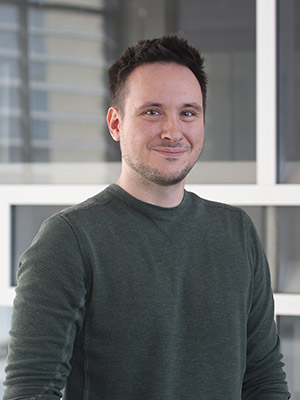
Jeff obtained his Ph.D. in 2015 in the lab of Dr. Douglas McMahon at Vanderbilt University where his research focused on the bidirectional relationship between the molecular and electrical rhythms in the brain’s biological clock, the suprachiasmatic nucleus (SCN). After a brief postdoc with Dr. Luis de Lecea at Stanford University to learn in vivo imaging, Jeff joined the lab of Dr. Erik Herzog at Washington University in St. Louis in 2016, where he studied the inputs to and outputs from the SCN that together generate circadian rhythms in behavior and physiology. In 2021, Jeff started his lab in the Department of Biology at Texas A&M.
Circadian (~24 h) rhythms are synchronized to local time by the master circadian pacemaker, the suprachiasmatic nucleus (SCN). The SCN, with its well-defined inputs (light) and reliable outputs (daily rhythms) is a uniquely advantageous model in which to investigate the fundamental neuroscience question of how genes, neurons, and circuits interact to influence behavior and physiology. Dissecting the circuits that regulate circadian rhythms is also crucial to understand how their disruption contributes to disease. The overarching research goal of the Jones Lab is to understand how circadian output from the SCN is encoded by downstream neurons to ultimately generate diverse endocrine, autonomic, and behavioral rhythms with different phases and waveforms.
Dr. Alex Keene
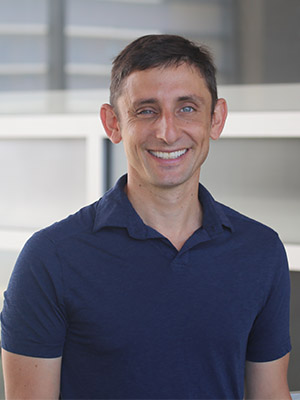
Alex received his Ph.D. in 2006 from UMass Medical School where he worked in the laboratory of Scott Waddell studying neural circuits underlying memory consolidation. His postdoctoral research in the laboratory of Justin Blau at NYU examined how sleep and metabolic cues are integrated in fruit flies.In 2011 he joined the Department of Biology at University of Nevada, then moved to the Department of Biological Sciences at Florida Atlantic University in 2015.He joined Texas A&M as a Professor and Head of Biology in 2021 where his laboratory studies the genetic basis of sleep in the fruit fly, and the evolution of sleep loss in blind Mexican cavefish.
Neural regulation of sleep, appetite, and energy homeostasis is critical to an animal’s survival and under stringent evolutionary pressure. Flies, like mammals, suppress sleep when starved, providing a system to interrogate interactions between sleep and metabolism. We have performed a large genetic screens to identify novel regulators of sleep-metabolism interactions, and are currently investigating the genes and neural circuits that integrate these processes. As a complementary approach, we have been working to establish Mexican cavefish as a model for the evolution of sleep in a nutrient-poor environment. We have generated comparative brain atlases and whole-brain functional imaging approaches that have identified a reorganization of the hypothalamus and increased slow wave sleep intensity in cavefish. Together this system has potential to identify conserved genetic, physiological, and anatomical mechanisms associated with variable sleep
Dr. Wanhe Li
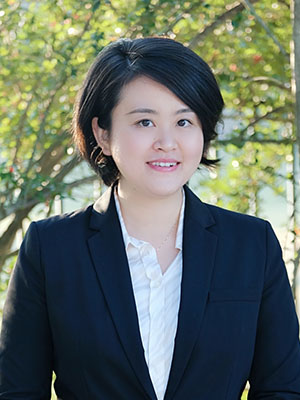
Dr. Wanhe Li has long been interested in using genetic model organisms to understand animal behavior at the genetic, molecular, and neuronal circuitry levels. Dr. Li received her Ph.D. from the joint program of Molecular and Cellular Biology of Stony Brook University and Cold Spring Harbor Laboratory, where she investigated genetic and molecular mechanisms of learning, memory, and age-related memory decline. Her graduate work advanced a novel theory that activation of retrotransposons contributes to memory decline in aged and diseased brains. During her postdoc research, she developed a framework studying the perception of social isolation and the molecular etiology of sleep loss in Drosophila melanogaster under the supervision of Nobel laureate Dr. Michael W. Young at the Rockefeller University. In 2022, she started her laboratory in the Department of Biology at Texas A&M University. The goal of her research program is to uncover mechanistic links between emotional states, biological timing, sleep, and development of chronic diseases using interdisciplinary approaches.
Chronic social isolation and loneliness have profound impacts on public health. Though experimental manipulations have been widely applied to studying sleep/wakefulness and circadian regulation in animal models, how normal sleep is perturbed by social isolation and chronic stress is largely unknown. In 2021, Dr. Li reported that chronically isolated animals exhibit sleep-loss accompanied by overconsumption of food. The observed behavioral changes induced by chronic social isolation stress is linked to neural activities in specific neural circuits in the Drosophila brain. These results resonate with anecdotal findings of loneliness-associated sleep difficulties and hyperphagia in humans, and present a mechanistic link between chronic social isolation, metabolism, and sleep, addressing a long-standing call for animal models focused on loneliness. Future work built upon this model will help us understand the perception of social isolation, the regulation of sleep/wakefulness, and the regulation of metabolism at the intersection of genetics, biological timing, and neurobiology. Furthermore, Dr. Li seeks to apply her findings in stress neurobiology to the field of chronic diseases, and ultimately to establish a genetically tractable model to study the reciprocal relationship between chronic stress and cancer progression. She is named CPRIT Scholar in Cancer Research and supported by the Cancer Prevention and Research Institute of Texas (CPRIT) for developing this new and exciting direction of research.
Dr. Shogo Sato

After the Ph.D. training at Waseda University, Japan, Shogo experienced a short-term postdoc training with Dr. Kosaku Uyeda at the University of Texas Southwestern Medical Center, where he studied the regulatory mechanism of how carbohydrate-regulatory transcription factor ChREBP senses feeding/fasting cycles. In 2015, Shogo joined the laboratory of the late Paolo Sassone-Corsi at the University of California, Irvine, where he studied how circadian clock functions are reprogrammed in response to physiological and environmental changes. In 2021, Shogo started his lab in the Department of Biology at Texas A&M University.
Dr. Sato has a broad research background in circadian biology combined with growing knowledge in biochemistry, epigenetics, and metabolism. Especially during his second postdoctoral career in the laboratory of the late Paolo Sassone-Corsi at UCI, he has been tackling the question of how the circadian clock links to metabolic functions. Dr. Sato demonstrated the circadian control of metabolic pathways is reprogramed by aging, which is rescued by caloric restriction (Sato et al., Cell 2017). More recently, Dr. Sato investigated the time-dependent impact of exercise, revealing exercise at the early active phase (fasted phase) exerts robust metabolic responses in skeletal muscle (Sato et al., Cell Metab 2019) and illustrating the atlas of exercise metabolism unique to different exercise timing (Sato et al., Cell under revision). Lastly, Dr. Sato discovered a novel non-canonical role played by the circadian clock specific to pluripotent stem cells (Sato et al., in preparation). Taken together, his past/ongoing studies contribute to the accumulation of evidence underscoring a healthy lifestyle relied on biological clocks.
Dr. Paul Hardin recognized as 2020 AAAS Fellow
Dr. Paul Hardin has been recognized as a 2020 Fellow of the American Association for the Advancement of Science (AAAS), honored by his peers with the prestigious distinction this year for distinguished contributions to the field of biological rhythms, particularly for discovering molecular feedback loops that govern circadian timekeeping in all eukaryotes. Please take a moment to congratulate Dr. Hardin and read about the fellowship in the TAMU Science Article!
Dr. Christine Merlin Named 2020 Presidential Impact Fellow
Dr. Christine Merlin, an Associate Professor in Department of Biology, has been honored among the 2020 Presidential Impact Fellows. The award was initiated by President Michael K. Young to recognize rising stars in their respective fields, and who embody the university’s commitment to advancing knowledge through transformational learning, discovery, innovation and impact for Texas and the world. Please take a moment to read the TAMU Science Article, and be sure to congratulate Dr. Merlin!
Texas A&M Biologists Identify Mechanism Behind Clock Control of Protein Production
Scientists have known for some time that the biological clock controls many functions related to human health. But can these clock-regulated processes and the resulting feedback that affects their timing share a common trigger? Texas A&M University biologists have determined the answer is yes, thanks to a fundamental and conserved mechanism that contributes to how the circadian clock regulates rhythms in protein production. Read more about the newest PNAS paper out from the Bell-Pedersen Lab in the TAMU Science Article.
Graduate Student Spotlight: Zhaolan Ding
This month’s Graduate Student Spotlight highlights Zhaolan Ding. A student in the Bell-Pedersen Lab, Zhaolan works on circadian clocks in Neurospora crassa. Learn more about Zhaolan and her graduate experience in this month’s Spotlight.
Dr. Mark Zoran 2020 Recipient of Women’s Progress Administrator Award
Congratulations to to Dr. Mark Zoran for receiving the Women’s Progress Administrator Award from the Accountability, Climate, and Equity (ACE) Awards for 2020! This award is given to those who encourage and direct attention to an improved environment for women through policy formation, goal-setting, programs, staff selection, and who positively promote women’s issues in the workplace. Read more about the ACE Awards and the 2020 Recipients!
Dr. Richard Gomer Appointed as University Distinguished Professor
Congratulations to Dr. Gomer, who is among the seven Texas A&M University faculty appointed to the rank of University Distinguished Professor! Dr. Gomer is globally renowned as a prolific researcher and pioneering inventor with a strong track record of translating his research findings into societal benefit, learn more about Dr. Gomer and his achievements in the TAMU Science Article.
Texas A&M Biologists Celebrate Biotech Start-Up’s $1.4 Billion Sale
Congratulations to Dr. Richard Gomer and Dr. Darrell Pilling on the sale of their Biotech company Promedior Inc., which is focused on research into fighting fibrotic diseases! Learn more about their work and the sale in the TAMU Science Article.
Dr. Deb Bell-Pedersen Named to Inaugural Class of 2019 University Professorships
Dr. Deborah Bell-Pedersen, professor of biology and associate head of operations in the Department of Biology at Texas A&M University, has been named as one of five inaugural holders of a University Professorship, a new faculty honor announced Wednesday (May 1) by Texas A&M Provost and Executive Vice President Dr. Carol A. Fierke.
Dr. Christine Merlin’s Research featured by TAMU Science
Biologists at Texas A&M University are making strides in understanding biological clock function in several model organisms and translating these studies into broader implications for human health in, “Texas A&M Biologists Find Genetic Evidence for Clock Control and Vitamin A Regulation of Seasonal Responses in Monarchs”, November 26, 2019.
Dr. Jerome Menet’s Research featured by TAMU Science
Texas A&M Biologists Find Feeding Time Influences Liver’s Biological Clock in Mice. “Timing is Everything”, April 26, 2019.
Dr. Paul Hardin Earns Indiana University Distinguished Alumni Award
On Sept. 28, 2018, Dr. Paul E. Hardin, University Distinguished Professor and holder of the John W. Lyons Jr. ’59 Chair in Biology at Texas A&M University, has been honored by the Indiana University Bloomington Department of Biology with its inaugural Distinguished Alumni Award. via TAMU Science
Dr. Deb Bell-Pedersen Research featured by TAMU Science
Texas A&M Research Shows Biological Clocks Could Improve Brain Cancer Treatment. Timing may be right for glioblastoma as a candidate for chronochemotherapy — treating cancer at specific times of day for maximum impact. January 9, 2018.
Dr. Christine Merlin Honored as Klingenstein-Simons Neuroscience Fellow
Dr. Christine Merlin, assistant professor of biology at Texas A&M University, has been recognized as one of 14 recipients of the 2017 Klingenstein-Simons Fellowship in Neuroscience. September 7, 2017.
Dr. David Earnest interview with The Texas Tribune
On April 11, 2016, an interview with Dr. David Earnest entitled “The Q&A: David Earnest” was published by The Texas Tribune.
Dr. David Earnest interview with KBTX
On April 11, 2016, an interview with Dr. David Earnest entitled “ Wrong foods at wrong times may mimic ‘jet lab’” was published by KBTX.
Dr. David Earnest’s Research Featured in Cosmopolitan
On April 7, 2016 Dr. David Earnest’s research was featured in Cosmopolitan in the article “This Is the Best Time of Day to Eat a High-Fat Meal.”
Dr. David Earnest interview with Huffington Post
On April 27, 2015, an interview with Dr. David Earnest entitled ” The Main Cause Of All Those Sleepless Nights” was published by the Huffington Post.
Dr. David Earnest Featured on WTAW Newstalk Radio
On January 15, 2015, and interview with Dr. David Earnest entitled ” How Did the Lack of Sun Affect You?” was featured on WTAW Newstalk radio.
Drs. David Earnest and Chaodong Wu Published on the Futurity Website
On May 20, 2014, an interview with Drs. David Earnest and Chaodong Wu entitled “ Do high-fat diets make body clocks run late?” was published on the Futurity website.
Dr. David Earnest featured on the Texas A&M Health Science Center Website
On May 19, 2014, an interview with Dr. David Earnest entitled “ Battle of the bulge” may be linked to body clock in immune cells was featured on the Texas A&M University Health Science Center website.
